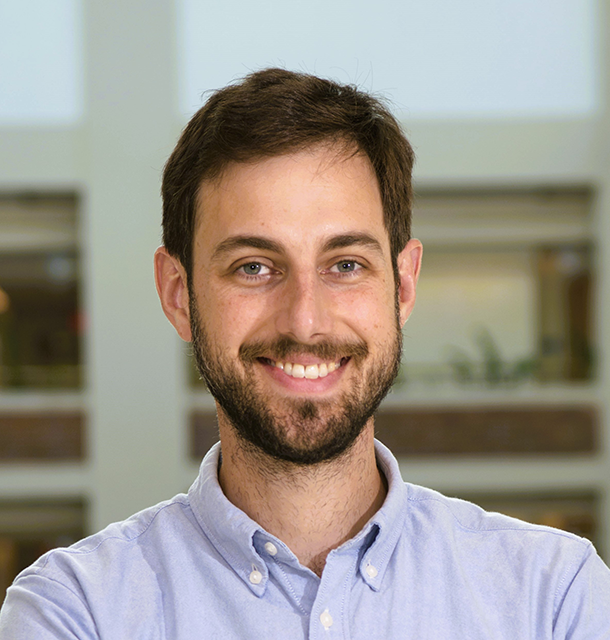Derin Sevenler joins ChemE faculty
Lauren Smith
Apr 16, 2024

Source: Derin Sevenler
Derin Sevenler will join the faculty of Carnegie Mellon University as an assistant professor of chemical engineering, beginning in August 2024.
Sevenler was previously an instructor in the Center for Engineering in Medicine & Surgery at Massachusetts General Hospital and Harvard Medical School. From 2018 to 2022, he was a postdoctoral fellow in the laboratory of Mehmet Toner at Massachusetts General Hospital.
Sevenler received his Ph.D. in biomedical engineering from Boston University in 2017 and his BS in mechanical and aerospace engineering from Cornell University in 2011.
Through his work developing devices, systems, and materials to improve human health, Sevenler has seen firsthand that today's clinical problems are multidisciplinary. They require large teams of different experts. Sevenler's research contributes to the safety, efficacy, and accessibility of therapeutic gene editing.
This new class of therapies is incredibly powerful. Cell and gene therapies are being explored for almost all disease areas. They are also some of the most expensive medicines ever produced. Because they are so difficult to make, a single dose can cost hundreds of thousands or even millions of dollars. Sevenler recognizes the potential for chemical engineering to provide the means to make new therapies accessible to more people.
The focus of Sevenler's experimental research will be biomolecular transport engineering. Sevenler is particularly interested in technologies for editing large numbers of cells outside of the body, which could have significant clinical impacts across cancer therapy, global health, regenerative medicine, autoimmune disease, and metabolic disorders.
Sevenler's lab uses viscoelastic microfluidics to perform "surgery" on single cells at unprecedented speed. They study the non-Newtonian forces that can arise in fast-moving viscoelastic fluids, which are frequently encountered in engineering and biology, and use these forces to manipulate single cells very fast. Inside a microfluidic chip, Sevenler can do surgery at a rate of five million cells per second. The throughput is necessary to scale up manufacturing of cell and gene therapies, which can require billions or even trillions of engineered cells to produce each dose.
Sevenler also wants to better understand, at a molecular level, how molecules get into cells when he permeabilizes the membrane. During the surgery, inertia and drag forces stretch the cell membrane, creating nanoscale pores. The literature on the technique is very broad. However, there is currently little attention paid to helping cells repair their membrane afterwards. Sevenler compares the state of the art to a surgeon who opens up a patient, does the operation, and then leaves without closing the patient back up again.
Sevenler wants to find a mechanistic explanation for how the pores form, how big they get, how long they stay open, and how the cell repairs them. Sevenler's lab will start by taking the first pictures of these pores on the surfaces of cells, using nanophotonic instruments.
"New ways of making cell and gene therapies will be required to increase access for the millions of eligible patients around the country and globally," says Sevenler. "We need to train a new generation of chemical engineers and biomolecular engineers who will develop new approaches."
For media inquiries, please contact Lauren Smith at lsmith2@andrew.cmu.edu.
